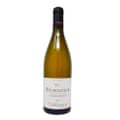The other day, I tasted a brilliant chardonnay. Australian, not French, as it happens, though it could easily have passed for a meursault. It was made by Virginia Willcock of Vasse Felix, located in the Margaret River region of Western Australia, who has made a speciality of the variety, and this was her top-of-the-range Heytesbury Chardonnay.
In an ideal world, I’d like everyone who is sceptical about chardonnay, particularly Australian chardonnay, to taste Willcock’s, but at about £50 a bottle, that just isn’t going to happen. I couldn’t justify splashing out that sort of cash, either, though I could just about run to her less expensive but still impressive estate chardonnay in today’s pick.
It made me wonder yet again why we’re not more enthusiastic about this versatile and sensuous grape, which produces some of the best white wines in the world. The answer most people come up with is simply that there was just too much of it around during the 1990s, and a lot of it not particularly good. However, the same could be said about New Zealand sauvignon blanc, which is as popular as it ever was.
Therein, I think, lies the clue. Sauvignon is an easy wine to drink before a meal or when you’re not eating, but chardonnay really needs food to show it at its best. In fact, if you’ve taken against it, may I suggest you retry it with a buttery roast chicken, chicken pie with tarragon, creamy mushroom risotto or some roasted corn or butternut squash? The wine you may find too rich or cloying on its own will suddenly segue beautifully into balance, especially if you serve it cool (say 13-14C), rather than ferociously chilled.
Still resistant? Look for winemaking regions that have cooler climates, often with a coastal influence. Limari in Chile (The Wine Society does a well-priced, own-label one), Sonoma in California, South Africa’s Hemel en Aarde and Australia’s Mornington Peninsula and Tasmania, as well as the Margaret River (see today’s pick).
Chablis, although nowhere near the sea, is also leaner and more mineral thanks to its northerly location, as is English chardonnay – which, at its best, develops that much-admired “struck-match” character – a descriptor that I suspect makes no sense at all to anyone outside the wine trade. Just think slightly smoky.
Then there’s champagne, which is not generally thought of as an expression of chardonnay, but most blanc de blancs share the glorious creaminess of their still counterparts. Heavens, you might even discover you like chardonnay after all.
Five bottles to convert chardonnay-haters
Deer Point Chardonnay 2021 £5.85 Booths, 12%. A deliciously smooth, creamy, Bulgarian chardonnay you could mistake for one at twice the price.

Kumeu River Hand Harvested Chardonnay 2020 £13.90 (or £12.40 if you buy three or more) Tanners, 13.5%. A sumptuously rich chardonnay to drink with roast chicken. A lot of wine for the money.

Domaine Vaudoisey Bourgogne Blanc 2020 £19.50 Private Cellar, 13%. Basic but really classy burgundy. Pure and linear. Ideal for shellfish.

Vasse Felix Estate Chardonnay 2020 £27.99 Latitude Wine, £29,99 Cambridge Wine Merchants (£26.99 if you buy a case of 12), £102 a case of six in bond Farthinghoe Fine Wine, 13%. Lovely, creamy chardonnay with that seductive, smoky, “struck-match” character.

Berry Bros & Rudd Blanc de Blancs champagne, grand cru £36, 12%.The characteristic, creamy taste and texture of a blanc de blancs is very much to the fore in this surprisingly well-priced fizz, given it comes from a posh Mayfair wine merchant. Almost clotted cream, in fact. Delicious.
Stay connected with us on social media platform for instant update click here to join our Twitter, & Facebook
We are now on Telegram. Click here to join our channel (@TechiUpdate) and stay updated with the latest Technology headlines.
For all the latest Lifestyle News Click Here
